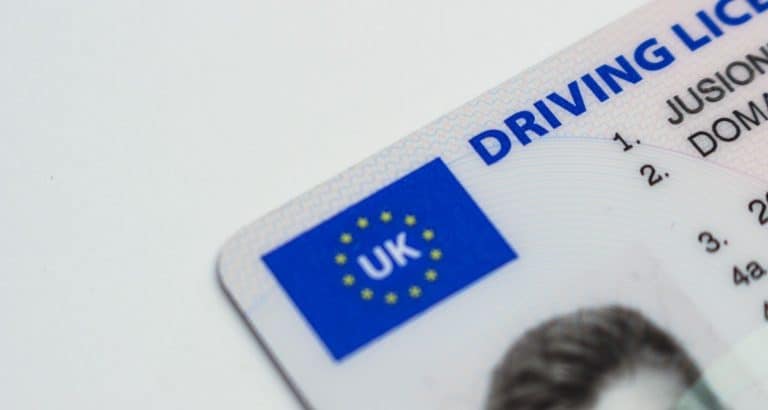Can a Hotel Charge You After Check Out? A Comprehensive Guide
Have you ever experienced the unpleasant surprise of being charged additional fees by a hotel after checking out? It’s a situation that can leave you feeling frustrated and confused, especially if you thought you had settled the bill in full.
If you’re short on time, here’s a quick answer to your question: Yes, a hotel can charge you after check out for various reasons, such as incidental charges, damages, or unpaid services.
In this comprehensive article, we’ll delve into the details of when and why hotels may charge you after check out, what you can do to prevent unexpected charges, and how to handle disputes if they arise. We’ll also explore your rights as a consumer and provide tips for a hassle-free hotel stay.
Common Reasons for Post-Check Out Charges
While checking out of a hotel, you may assume that settling the bill marks the end of your financial obligations. However, that’s not always the case. Hotels can charge you after check out for various reasons, and it’s essential to be aware of these potential fees to avoid any unpleasant surprises down the line.
Incidental Charges
Incidental charges are often the most common reason for post-check out fees. These charges can include room service, minibar purchases, laundry services, or any other additional services you may have used during your stay.
Hotels typically place a hold on your credit card at check-in to cover these incidental charges, but if the hold amount is insufficient, you may be billed after check out.
Damages and Cleaning Fees
If you accidentally damage hotel property or leave the room in an exceptionally messy state, you may be charged for repairs or additional cleaning fees. According to a survey by Hotel Addict, the average cleaning fee for a standard hotel room is around $30-$50, but it can be higher for larger rooms or suites.
Smoking in non-smoking rooms can also result in hefty fines, often ranging from $250 to $500 or more.
Unpaid Services or Amenities
Sometimes, guests may forget to settle their bills for services or amenities used during their stay, such as spa treatments, golf course fees, or restaurant charges. In these cases, the hotel will charge you for the unpaid services after you’ve checked out.
To avoid such situations, it’s always a good idea to review your bill thoroughly before checking out.
Late Check Out Fees
Most hotels have a strict check out time, usually around 11 AM or noon. If you overstay beyond this time without prior arrangement, you may be charged a late check out fee. These fees can vary greatly, but they are typically calculated based on a percentage of the room rate or a fixed amount per hour.
For example, some hotels may charge a 50% fee for checking out up to 6 hours late, and a full night’s rate for anything beyond that.
Smoking Fees
As mentioned earlier, smoking in non-smoking rooms can result in hefty fines. Hotels have become increasingly strict about enforcing their non-smoking policies, and the fees can range from a few hundred dollars to over $1,000 in some cases.
These fees are meant to cover the cost of deep cleaning and deodorizing the room, as well as potential revenue loss if the room needs to be taken out of service for an extended period.
To avoid unexpected post-check out charges, it’s always a good idea to familiarize yourself with the hotel’s policies, review your bill carefully before checking out, and report any discrepancies or concerns immediately.
By being proactive and communicating openly with the hotel staff, you can ensure a smooth and hassle-free experience during your stay.
Understanding Hotel Policies and Contracts
When you book a hotel room, you’re essentially entering into a contract with the establishment. It’s crucial to read the fine print and understand the policies thoroughly to avoid any unexpected charges or disputes after checking out. 😊
Reading the Fine Print
Hotel policies are typically outlined in the terms and conditions during the booking process. These policies cover a wide range of aspects, including cancellation fees, early check-out penalties, damage charges, and incidental fees.
By carefully reviewing these policies, you can make an informed decision and avoid any unpleasant surprises. According to a survey by Consumer.ftc.gov, one in four travelers reported being hit with unexpected fees during their hotel stay. Don’t let yourself be part of that statistic!
Authorized Charges and Holds
Hotels often place a hold on your credit card or debit card for incidental charges, such as room service, minibar purchases, or spa services. This hold is typically released after you check out, but it can sometimes take a few days for the funds to become available again.
It’s important to understand the hotel’s policy regarding holds and authorized charges to avoid any confusion or overdraft fees.
Additionally, some hotels may require a security deposit or authorization hold for potential damages or unpaid charges. This amount can vary based on the hotel’s policies and the length of your stay. Be sure to inquire about these practices and factor them into your budget. 👍
Disputing Unauthorized Charges
Despite your best efforts, there may be instances where you find unauthorized charges on your bill after checking out. In such cases, it’s crucial to act promptly and dispute the charges with the hotel. Here are some steps you can take:
- Review your itemized bill thoroughly and identify the disputed charges.
- Contact the hotel’s billing department or customer service and provide evidence to support your claim.
- If the hotel is uncooperative, consider filing a complaint with the appropriate consumer protection agency or your credit card company.
- Keep a detailed record of all communications and follow up persistently until the issue is resolved.
According to a study by NerdWallet, around 20% of travelers have encountered unauthorized charges on their hotel bills. Don’t let yourself become a statistic! Stay vigilant and take action if necessary.
Remember, understanding hotel policies and contracts is key to avoiding unexpected charges and ensuring a hassle-free stay. By reading the fine print, being aware of authorized charges and holds, and knowing how to dispute unauthorized charges, you can protect yourself and enjoy a worry-free vacation or business trip.
🎉
Preventing Unexpected Charges
Reviewing Your Bill Before Check Out
One of the most effective ways to prevent unexpected charges after checking out of a hotel is to thoroughly review your bill before leaving. 😊 Don’t be in a rush to check out – take the time to go through each line item on the bill carefully.
According to a survey by TripAdvisor, nearly 25% of travelers have experienced unexpected charges on their hotel bills. By reviewing your bill, you can catch any errors or unauthorized charges before it’s too late.
If you notice any discrepancies or charges you don’t understand, don’t hesitate to ask the front desk staff for clarification. They should be able to provide a detailed explanation for each charge and make any necessary adjustments.
Remember, it’s much easier to resolve issues while you’re still on the premises rather than trying to dispute charges after you’ve left.
Documenting Room Condition
Another smart move is to document the condition of your hotel room upon arrival and departure. This can help protect you from being charged for any pre-existing damage or wear and tear. 👍 When you first enter the room, take a few minutes to inspect it thoroughly and note any issues, such as stains, scratches, or broken fixtures.
If possible, take photos or videos as evidence.
Before checking out, do another thorough inspection and document any new damage that may have occurred during your stay. This way, you have a record to back you up if the hotel tries to charge you for something you didn’t do.
According to a study by Consumer Reports, around 15% of hotel guests have been charged for damages they didn’t cause.
Communicating with Hotel Staff
Open and clear communication with hotel staff can go a long way in preventing misunderstandings and unexpected charges. If you have any concerns or questions during your stay, don’t hesitate to voice them.
The hotel staff should be happy to address your concerns and provide clarification on any policies or charges.
Additionally, if you plan to use any additional services or amenities that may incur extra charges (such as room service, spa treatments, or minibar items), make sure to communicate with the staff beforehand.
Ask for a breakdown of costs and confirm any charges upfront to avoid surprises on your final bill. Can’t we all agree that unexpected charges are a real buzzkill when it comes to hotel stays? 😩 By following these simple steps, you can have a stress-free and transparent experience during your next hotel visit.
Handling Disputes and Chargebacks
If you find yourself in a situation where a hotel has charged you after check-out for reasons you deem unfair or unjustified, it’s essential to take prompt action. Don’t let the issue linger; address it head-on to increase your chances of a favorable resolution. Here are some steps you can take:
Contacting the Hotel
The first step should be to contact the hotel directly. Reach out to the front desk or customer service department and explain your situation calmly and clearly. Request a detailed explanation for the charges and provide any evidence or documentation that supports your case.
According to a study by the American Hotel & Lodging Association, nearly 80% of disputes can be resolved through open communication and cooperation between guests and hotels.
If the initial response from the hotel is unsatisfactory, don’t hesitate to escalate the matter to a higher authority, such as the general manager or corporate office. The Federal Trade Commission (FTC) recommends keeping detailed records of all communications, including dates, times, and the names of the representatives you spoke with.
Filing a Chargeback with Your Credit Card Company
If the hotel remains uncooperative or unwilling to resolve the issue, your next step could be to file a chargeback with your credit card company. A chargeback is a formal dispute process that allows you to challenge unauthorized or erroneous charges on your credit card statement.
😊 Credit card companies have established procedures for handling chargebacks, and they will investigate the matter on your behalf.
When filing a chargeback, be sure to provide all relevant documentation, including receipts, correspondence with the hotel, and any other evidence that supports your claim. The Consumer Financial Protection Bureau (CFPB) recommends acting quickly, as there are typically time limits for initiating a chargeback.
Seeking Legal Assistance
In rare cases where the hotel and credit card company fail to resolve the dispute satisfactorily, you may consider seeking legal assistance. Consult with a consumer protection attorney or a local consumer affairs office to explore your options.
They can advise you on the applicable laws and regulations, and help you determine if legal action is warranted.
However, it’s important to weigh the potential costs and time commitment involved in pursuing legal action against the amount in dispute. In many cases, the hassle and expenses of a lawsuit may outweigh the benefits, especially for smaller claims.
Remember, prevention is often the best remedy. When checking into a hotel, thoroughly review the policies and terms regarding additional charges, damages, and check-out procedures. Ask questions if anything is unclear, and keep a record of your interactions with hotel staff.
By being an informed and proactive guest, you can minimize the risk of encountering unfair charges and disputes after check-out. 👏
Consumer Rights and Protections
When it comes to hotel charges after check-out, it’s crucial to understand your rights and protections as a consumer. The hospitality industry is governed by a set of federal and state laws, as well as industry regulations, to ensure fair practices and safeguard guests’ interests.
Additionally, various consumer advocacy organizations are dedicated to educating consumers and advocating for their rights.
Federal and State Laws
At the federal level, the Federal Trade Commission (FTC) is responsible for enforcing consumer protection laws, including those related to hospitality services. The FTC prohibits unfair or deceptive practices, such as hidden fees or unauthorized charges.
Additionally, many states have their own consumer protection laws and agencies that oversee the hospitality industry within their jurisdictions.
For instance, the California Department of Consumer Affairs provides resources and guidance for consumers, including information on hotel charges and fees. According to their website, hotels in California are required to disclose all fees and charges upfront, and guests cannot be charged for services they did not request or use.
Hotel Industry Regulations
The hospitality industry also has its own set of regulations and best practices to ensure transparency and fair treatment of guests. Organizations like the American Hotel & Lodging Association (AHLA) have established guidelines for hotels regarding fees, charges, and consumer rights.
According to the AHLA’s Lodging Industry Trend Report, in 2021, the average resort fee charged by hotels in the U.S. was $25.84 per night, and 85% of hotels disclosed these fees upfront. The report also highlighted the importance of clear communication and transparency regarding fees and charges to maintain consumer trust and satisfaction.
Consumer Advocacy Organizations
If you encounter issues with hotel charges or feel your rights have been violated, there are consumer advocacy organizations that can provide assistance and guidance. Organizations like Consumer.gov and the Consumer Reports offer resources, advice, and support for consumers navigating various industries, including hospitality.
For example, Consumer Reports has published articles on how to avoid hidden hotel fees and how to get hotel fees waived. These articles provide valuable tips and strategies for consumers to understand their rights and negotiate with hotels if they encounter questionable charges.
Conclusion
While it’s understandable to feel frustrated when faced with unexpected charges after checking out of a hotel, it’s important to be aware of the potential reasons and take proactive steps to prevent or resolve such situations.
By understanding hotel policies, reviewing your bill carefully, documenting room conditions, and communicating effectively with hotel staff, you can minimize the risk of post-check out charges. Additionally, familiarizing yourself with consumer rights and protections can empower you to handle disputes effectively if they arise.
Remember, a little preparation and vigilance can go a long way in ensuring a hassle-free and enjoyable hotel stay. By following the tips and guidelines outlined in this article, you can navigate the complexities of hotel charges with confidence and peace of mind.







